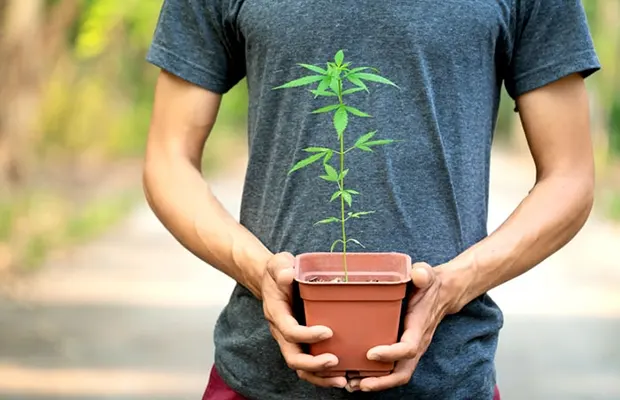
Common Misconceptions About Marijuana
Marijuana improves creativity
Common Misconceptions About Marijuana – It has been the misconception for some time that consuming marijuana makes a person more creative. While many artists, writers, and musicians have used marijuana, it does not really make a person more creative. One study gave participants varying does of THC (tetrahydrocannabinol, the chemical compound in cannabis responsible for a euphoric high) and asked them to solve a series of divergent and convergent problems to test their creativity. The participants who received the highest does of THC did the worst, and none of the groups performed better than participants who got no THC. However, the study did find that people who got higher doses of THC “believed” they were more creative.
Marijuana doesn’t harm your lungs
Marijuana is most frequently smoked, but generally, some people don’t believe it’s bad for your lungs. This misconception may be due to the “natural” or “organic” status that marijuana has. However, inhaling smoke is bad for your lungs, whether it’s smoke from cigarettes or smoke from a campfire. According to the American Lung Association, marijuana smoke has many of the same carcinogens (any substance or agent that tends to produce cancer) as cigarette smoke. Smoking marijuana regularly can lead to chronic bronchitis (inflammation of the mucous membrane in the bronchial tubes) and increased risk of respiratory infection. Despite this potential harm to the lungs, people who use marijuana recreationally are most at risk than people who use it for medicinal purposes. Common Misconceptions About Marijuana
Marijuana is a gateway drug
This is another common myth. While it’s true that people who use marijuana sometimes also use more addictive drugs like cocaine or opioids, there is data that says otherwise. The vast majority of people who have used marijuana have never used cocaine or opioids, but people who have used cocaine or opioids are very likely to have used marijuana. In addition, alcohol is by far the first substance most people use. It’s the most common and people use it at a younger age, making it a much better candidate for a “gateway drug”.
Marijuana is safe to use while driving
Although not necessarily the case, according to the National Institute on Drug Abuse, marijuana significantly impairs judgment, motor coordination, and reaction time, and studies have found a direct relationship between blood THC (tetrahydrocannabinol, the chemical responsible for most of marijuana’s psychological effects) concentration and impaired driving ability. Marijuana is the illicit drug most frequently found in the blood of drivers who have been involved in vehicle crashes, including fatal ones. Several meta-analyses of multiple studies found that the risk of being involved in a crash significantly increased after marijuana use. Even with the adverse psychological effects that can affect motor skills, it is advisable that people who are active users of medical marijuana consult with a medical professional for dosage amounts and time of treatment to avoid conflicts with day-to-day activities.
Marijuana isn’t addictive
It’s often said that marijuana isn’t addictive or that it’s psychologically addictive, but you can become addicted to it. Studies show that about nine percent of heavy marijuana users develop a serious addiction. Compared to that, about 15 percent of heavy drinkers will develop an alcohol addiction, 17 percent of cocaine user will develop an addiction, and about 23 percent of heroin users will become addicted. Marijuana is not addictive, but it is popular. More people use marijuana than they use cocaine, heroin, or other illicit drugs. About eight million Americans say they use marijuana every day, compared to just under a million who say they used heroin in the past year. That means about 720,000 Americans will become addicted to marijuana compared to an upper limit of 230,000 who will become addicted to heroin. Although marijuana is less addictive, the numbers make up for it. People who are addicted to marijuana will likely experience withdrawal symptoms when they quit: Marijuana
- Irritability, Anxiety, Depression, Headaches
- Insomnia, Fever and chills, Stomach pains
A majority of Doctors are ruling out marijuana
In states where marijuana is legal, the medical use of marijuana is a viable treatment option where prospective patients won’t be discriminated or judged. Medical professionals are there to help, and they are there to help you with your health concerns. Doctors are now getting up to speed about the medical use of marijuana and are breaking the mold about how society views cannabis. The treatment applications of marijuana outweigh the negative effects, such as pain-relieving ointment meant to treat aching muscles. Regardless of the legal status of marijuana, the substance has merit has a medical agent meant to treat ailments, aches, and some psychological benefits as well but this fact ultimately depends on the person, the methods in which the person decides to use marijuana, and the dosage amount. All in all, medical marijuana is a treatment option for people who are mindful of its benefits as well as its adverse effects.








